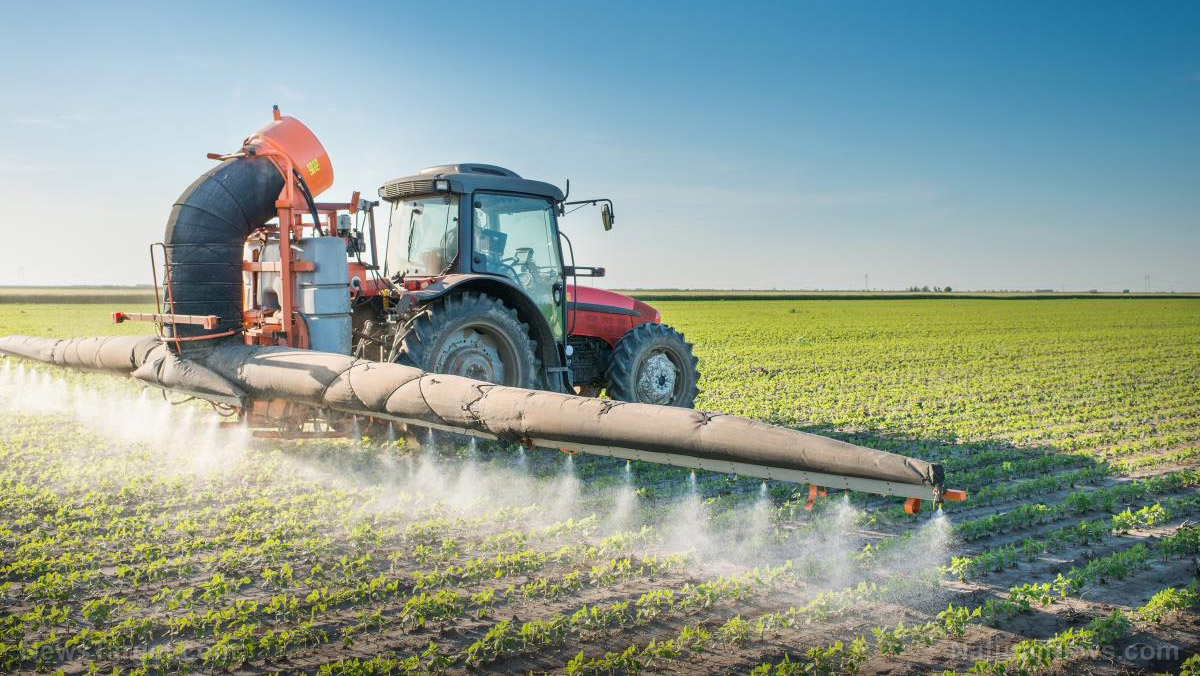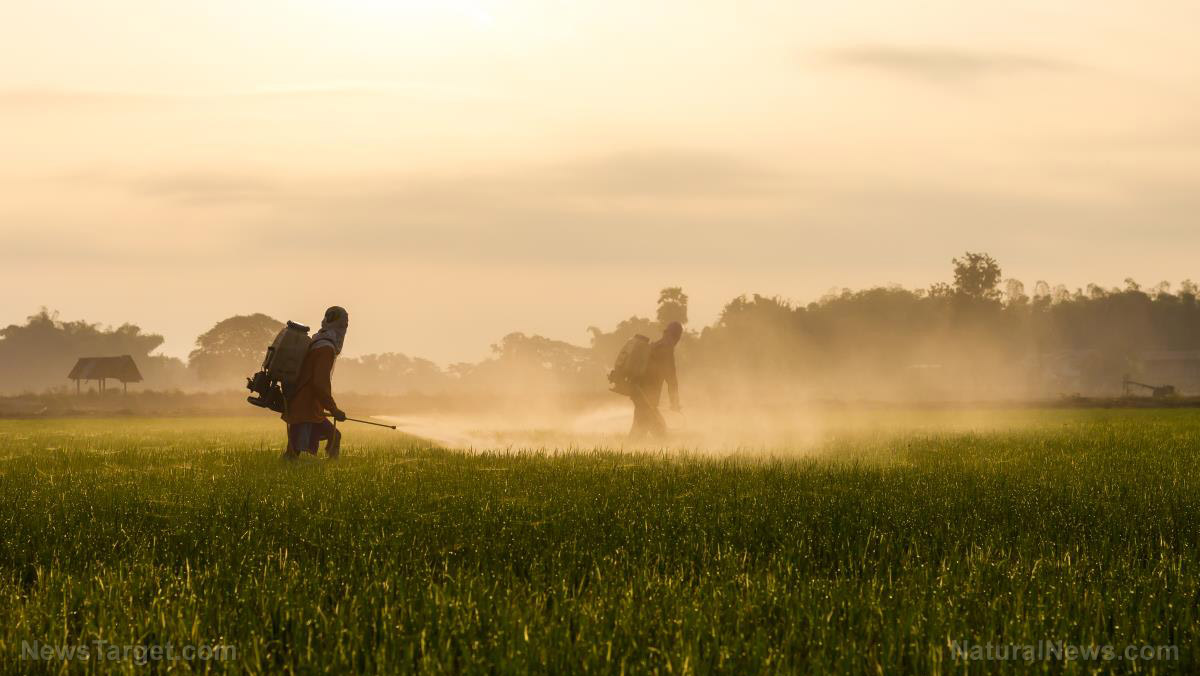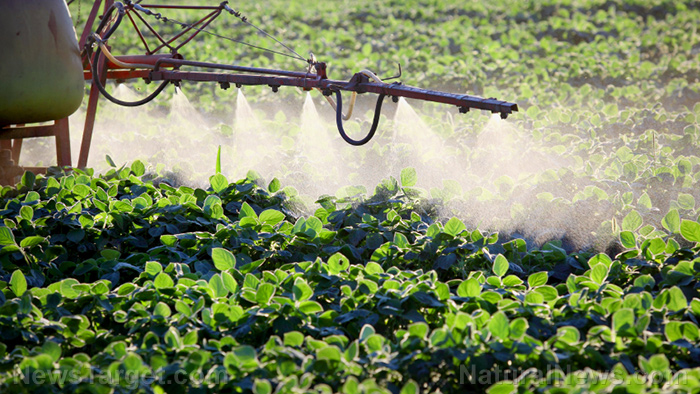
Dicamba has been in use for years, and is an ingredient in more than 1,000 farming and gardening products. Under the EPA’s new guidelines, however, its use is expected to increase on a massive scale.
Dicamba use will increase current levels more than 20 times
The EPA approval covers the use of dicamba for spraying dicamba-resistant GMO cotton and soybean crops that were developed by (you probably already guessed it) Monsanto as an alternative to its glyphosate-resistant GM crops.
From The Daily Sheeple:
“Dicamba is part of Monsanto’s two-point plan: replace glyphosate (the main ingredient in the company’s best-selling RoundUp weed killer), as it increasingly comes under fire, and create public acceptance of the GM crops engineered to withstand dicamba.
“Monsanto’s own conservative estimates predict that dicamba use on soybeans will likely rise from around 233,000 pounds per year to 20.5 million pounds per year — and dicamba use on cotton could go from 364,000 pounds per year to 5.2 million pounds per year.”
Dicamba health risks
Like many other toxic herbicides, Dicamba can cause a range of serious negative health effects in both humans and animals. Dicamba exposure has been linked to lung cancer, non-Hodgkin’s lymphoma, reproductive damage, birth defects and hormonal disruption.
Monsanto would like for people to believe that dicamba represents a safer alternative to glyphosate, but it is also a highly toxic herbicide that will have an as-yet unknown impact on the environment and human health when its use is so dramatically increased.
The danger posed to other crops by dicamba
Dicamba has recently been making headlines due to crop damage caused by drift. At least 10 states have reported widespread damage to thousands of acres of “non-target” crops, and in one case, a farmer was allegedly killed over a dicamba drift incident:
“Allegedly, a farmer on the Missouri-Arkansas border applied dicamba without a permit and caused significant damage to a neighboring farmer’s soy crop. An argument bubbled over, which led the shooting death of one farmer, and the arrest of the other.”
Much of the recent drift problem was caused by illegal spraying of dicamba, and Monsanto has been highly criticized for selling its dicamba-resistant seed before the EPA approved the herbicide for use.
This resulted in widespread illegal spraying and incidents of herbicide drift – one peach farmer in Missouri lost 30,000 trees. Drift damage from dicamba also affected watermelon, tomato, rice and many other crops as well as non-dicamba-resistant strains of soybean and cotton.
Monsanto’s new dicamba-based herbicide product – designed to work with its dicamba-resistant GM soybean and cotton seeds – is theoretically formulated to minimize drift contamination, but some are highly skeptical about its true effectiveness, while others worry that many farmers will continue illegally using the old drift-prone dicamba products.
At any rate, the EPA’s approval means that tens of millions more pounds of carcinogenic poison will be dumped yearly into our soil, water and air as the result of a money-making scheme propagated by an evil monopoly bent on owning and genetically manipulating the world’s seed supply, while destroying biodiversity and marginalizing those who would rather rely on organic farming techniques.
Monsanto wins a major victory with the help of the EPA
It sounds like the plot of an improbable Hollywood disaster film, but it’s all too real. Monsanto – after losing much of its company’s stock value and being forced to lay off a sizable portion of its workforce in recent years – seems to be rebounding with new strategies to maintain its stranglehold on global agriculture and food production.
Of course, having the EPA in its pocket hasn’t hurt Monsanto’s cause, either. In the war against food freedom and biodiversity, it appears Monsanto has just won a decisive battle.
Sources:
Please contact us for more information.























